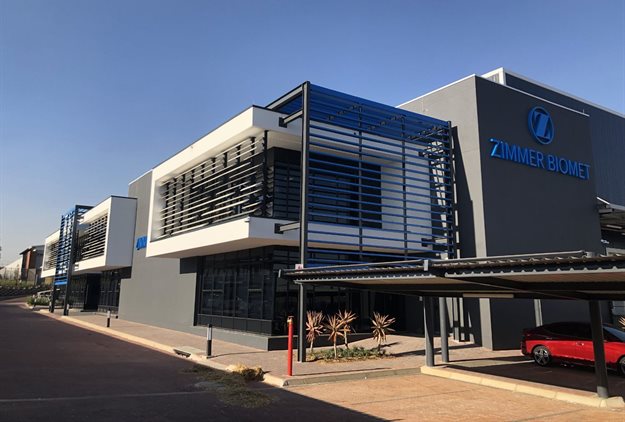African logistics, warehousing sector set to overcome pandemic storm
According to Tim White, CEO of Profica, the logistics and warehousing sectors have strong fundamentals in place which may see the industrial sector weather the Covid-19 storm and emerge with a more positive long-term outlook.

Tim White, CEO of Profica
Prior to the pandemic, the demand for quality industrial and logistics space was estimated at over 15 million square metres in Africa’s highest-potential markets. “Providers have struggled to keep up with demand in the logistics and warehousing market, which has been driven by growing e-commerce activity, increasing intra-regional trade and urbanisation,” says White.
“Now, while fewer new projects will break ground in the near-term, we do anticipate that a number of large logistics and retail users will need to expand as the pandemic subsides. The food and beverages market, currently the dominant user of warehousing space in Africa, as well as consumer goods, 3PL and e-commerce sectors will remain active. East Africa is likely to see the most demand for warehousing space.”
Flexible space
While Africa contains many of the world’s fastest growing economies, multinationals are hesitant to invest large amounts of capital in African facilities because of the perceived risks and lagging infrastructure development. However, many still need to build a local presence to tap into these markets, says White. Indigenous companies needing to grow and export, and 3PL logistics providers, particularly those servicing e-commerce, are also requiring more warehousing space.
White says there is strong demand for warehouse parks that are ready to move into: “Warehouse parks help businesses get to market faster and keeps capital costs to a minimum. Multinationals can easily lease space for light manufacturing, packing, processing, assembly and distribution. Large-scale warehouse parks further allow for logistics and manufacturing clusters to form across Africa as an interconnected network, enabling more intra-regional trade.”
With McKinsey forecasts showing that 75% of growth in Africa will come from small- and medium-sized enterprises, warehousing needs to be flexible to cater for a range of businesses. “Industrial occupiers of all sizes are being challenged by limited warehouse space options, escalating rental costs, the requirement for longer-term leases and inventory fluctuation. There is great opportunity in offering flexible warehouse options with a common technology platform to give these businesses easier entry to quality warehouses that meet the standards required by international customers,” says White.

E-commerce drives demand
E-commerce is the key driver of warehousing and logistics demand in Africa, with Nigeria, Kenya and South Africa leading the charge. According to McKinsey, African e-commerce has projected annual sales of $75bn by 2025. Retailers are working to tap into the 400 million connected internet users in Africa, a market second only to China. Global analysts maintain that e-commerce sales growth will continue even in a tough economy, driving a need for logistics fulfilment and warehousing to serve the supply chain.
However, distribution remains notoriously challenging in many parts of the continent and last-mile warehousing with local service provision is essential, says White. “E-commerce fulfilment can require four times the warehouse capacity in the destination market compared to traditional logistics models. Also, through Covid-19 and other supply chain shocks, companies want to keep more inventory on hand, which means more demand for space. We expect strong demand for logistics space, from large storage hubs down through to small last-mile fulfilment centres in urban centres, to continue to grow in key regions.”
Changing spaces
White says warehouse designs are also changing in terms of size and technology to allow for greater automation and amenities required for e-commerce fulfilment. “We’re seeing an ongoing evolution from the makeshift warehouses you’ll find in Africa to world-class warehousing platforms that provide modern space-maximising design, security, connectivity and reliable power,” says White. As property prices increase per square metre close to urban areas, in order to make the investments work, the warehouses need to accommodate more volume.
Cold storage in many African markets has long been a weak link, due to the construction costing up to three times of that of traditional warehouses, inconsistent power supply and a shortage of contractor expertise to build these specialised facilities. Investment in cold storage has increased in the last few years as an essential factor in enhancing agricultural value chains and reducing massive food losses. Improved technology can also minimise environmental impact, with solar increasingly becoming a viable option.
“More world-class warehousing will drive international investment and give local businesses the facilities they need to grow and tap into wider markets,” says White. “We are looking forward to being part of the growth of warehousing in Africa, helping the continent fulfil its immense potential. While the depth of the global recession may still make investment in even the most essential businesses challenging, e-commerce growth could make industrial property the safest commercial property bet.”

